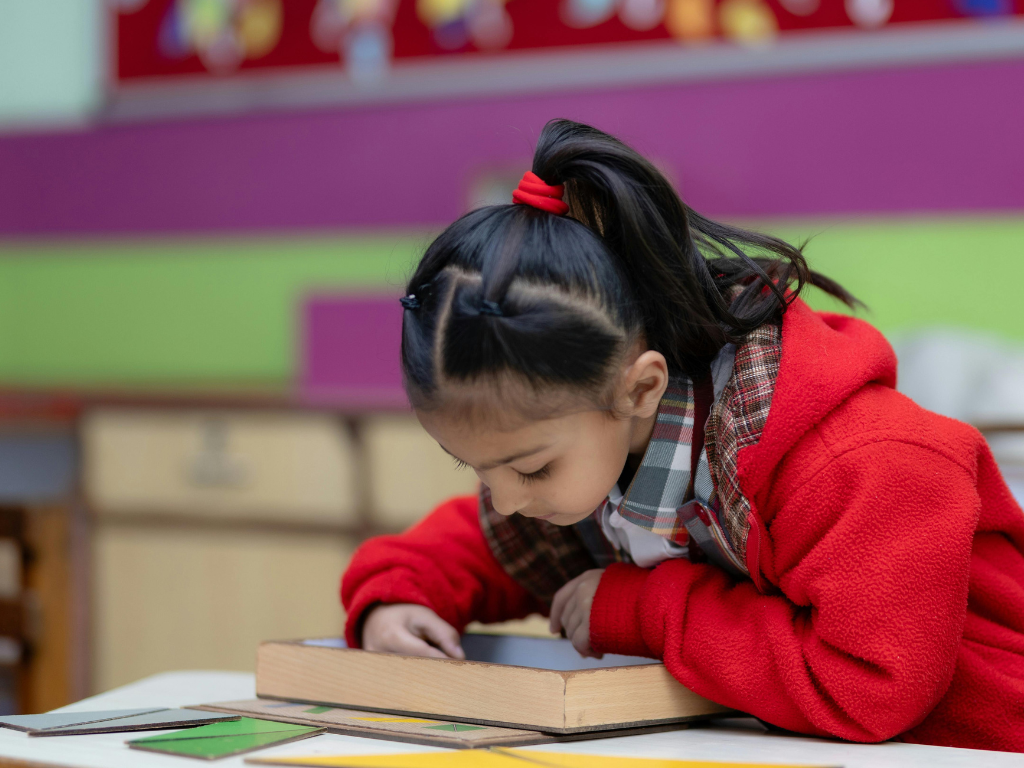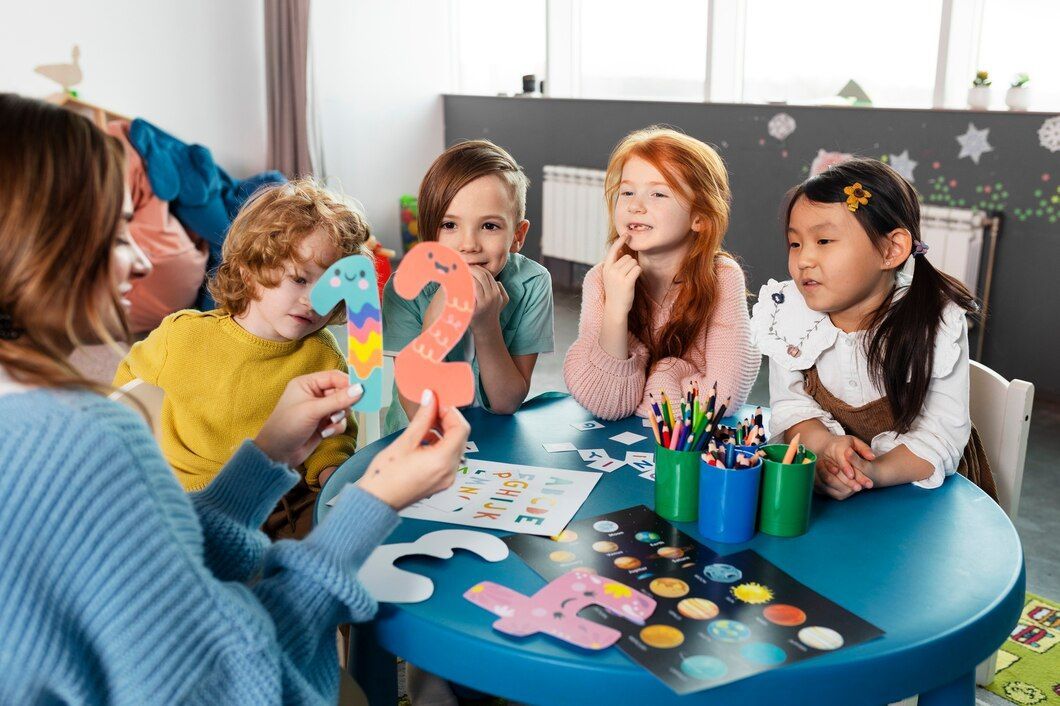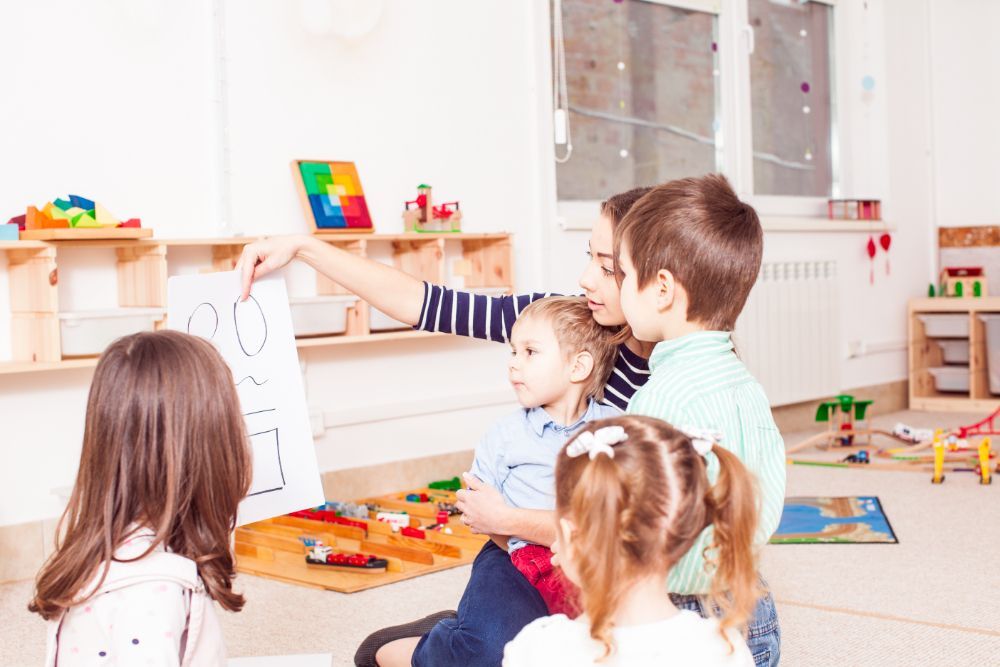Emotional Intelligence in Montessori Education: Nurturing Empathy, Self-Awareness, and Social Skills

Emotional intelligence, often regarded as a critical skill for personal and academic success, encompasses the ability to understand, manage, and express one's own emotions while navigating interpersonal relationships empathetically and effectively. Montessori education recognizes the importance of cultivating emotional intelligence, fostering a nurturing environment that encourages emotional growth and awareness, strong social skills, and resilience in the face of challenges.
In this article, we will explore the various methods Montessori education employs to promote emotional intelligence among students of all ages. We will delve into the essential components of emotional intelligence, including self-awareness, self-regulation, empathy, and social skills, and discuss how Montessori classrooms create opportunities to develop these skills through intentional experiences and strategies. Furthermore, we will address the role of Montessori educators in crafting nurturing environments where students feel secure to express themselves openly, manage their emotions effectively, and develop solid interpersonal relationships.
Let us embark on this enlightening journey through the realm of emotional intelligence and its crucial role in Montessori education. As we examine the various strategies, experiences, and insights that facilitate the development of strong emotional skills, you will come to appreciate the undeniable impact of emotional intelligence on your child's overall well-being and academic success.
Key Components of Emotional Intelligence in Montessori Education
Emotional intelligence, a multidimensional construct, comprises several crucial components that Montessori education aims to foster among its students. In this section, we will examine these components and their significance in promoting personal and academic success:
1. Self-Awareness: Understanding One's Emotions
Self-awareness, the ability to recognize and understand one's emotions, plays a vital role in emotional intelligence. Montessori classrooms encourage children to reflect on their emotions and develop a vocabulary to express them accurately. This heightened awareness enables children to better manage their feelings and respond to challenging situations constructively.
2. Self-Regulation: Managing Emotions Effectively
Self-regulation, another essential component of emotional intelligence, encompasses the ability to regulate and control one's emotions, even in difficult circumstances. Montessori educators provide guidance and strategies to help children manage their emotions, fostering a sense of self-control and resilience.
3. Empathy: Understanding and Responding to the Emotions of Others
Empathy, the ability to understand and relate to the emotions of others, is a critical skill for developing strong, positive relationships. Montessori education emphasizes the importance of empathy, encouraging children to put themselves in someone else's shoes and respond compassionately to the feelings of their peers.
4. Social Skills: Building Strong Interpersonal Relationships
Developing strong social skills is a valuable aspect of emotional intelligence, allowing children to interact effectively with others, resolve conflicts, and build positive relationships. Montessori classrooms aim to enhance social skills and emotional intelligence through a variety of activities and experiences, including collaborative projects, group discussions, and role-playing scenarios.
Strategies for Cultivating Emotional Intelligence in Montessori Classrooms
Montessori education employs numerous strategies to nurture emotional intelligence among students, creating an environment that fosters emotional growth and resilience:
1. Providing a Safe and Supportive Environment
A fundamental strategy for fostering emotional intelligence is creating a safe and supportive learning environment where children feel secure expressing their emotions. Montessori educators establish an atmosphere of trust and acceptance, ensuring students know their feelings are valued, respected, and understood.
2. Encouraging Reflection and Mindfulness
Montessori classrooms promote reflection and mindfulness, guiding students to develop a deeper understanding of their emotional experiences. Through activities such as journaling, guided meditation, and mindfulness exercises, children learn to observe their emotions without judgment and cultivate self-awareness.
3. Facilitating Collaborative Learning Experiences
Collaborative learning experiences in Montessori classrooms help children practice and develop their social skills and emotional intelligence. Working in groups, children learn to listen, cooperate, and engage empathetically with their peers, fostering strong interpersonal relationships.
4. Modeling Empathy and Emotional Expression
Montessori educators model empathetic behavior and emotional expression, helping students understand the importance of recognizing and acknowledging the emotions of themselves and others. Through their interactions with children, Montessori teachers demonstrate understanding, compassion, and effective communication skills, reinforcing the value of emotional intelligence.
The Role of Montessori Educators in Fostering Emotional Intelligence
Montessori educators play a pivotal role in promoting emotional intelligence among students, providing guidance and support throughout the learning process:
1. Developing Emotional Intelligence Curriculum
Montessori educators have a significant role in designing and implementing curriculum that addresses the various components of emotional intelligence. This may include activities centered around self-awareness, empathy, self-regulation, and social skills, ensuring a holistic approach to emotional development.
2. Creating an Emotionally Nurturing Environment
Montessori teachers work diligently to create a classroom environment that fosters emotional well-being. This entails establishing a positive atmosphere where students feel comfortable discussing emotions, collaborating with peers, and exploring their own emotional growth.
3. Supporting Individual Needs and Emotions
Educators recognize and respond to the individual emotional needs of their students, using targeted strategies and providing personalized support to promote resilience and emotional growth.
Emotional Intelligence in Montessori Education – Empowering Children for Success
Emotional intelligence, a vital skill for academic success and personal well-being, is deeply rooted in the foundation of
elementary Montessori education. Through targeted strategies, supportive environments, and a curriculum that addresses the essential components of emotional intelligence, Montessori classrooms empower children to understand and manage their emotions, cultivate empathy, and develop strong social skills.
At Marlboro Montessori Academy, our commitment to fostering emotional intelligence in every child ensures they are equipped with the essential skills and resilience needed to navigate life's challenges with confidence. Together, let us nurture the emotional growth of your child, setting the stage for a lifetime of success, both personally and academically.











